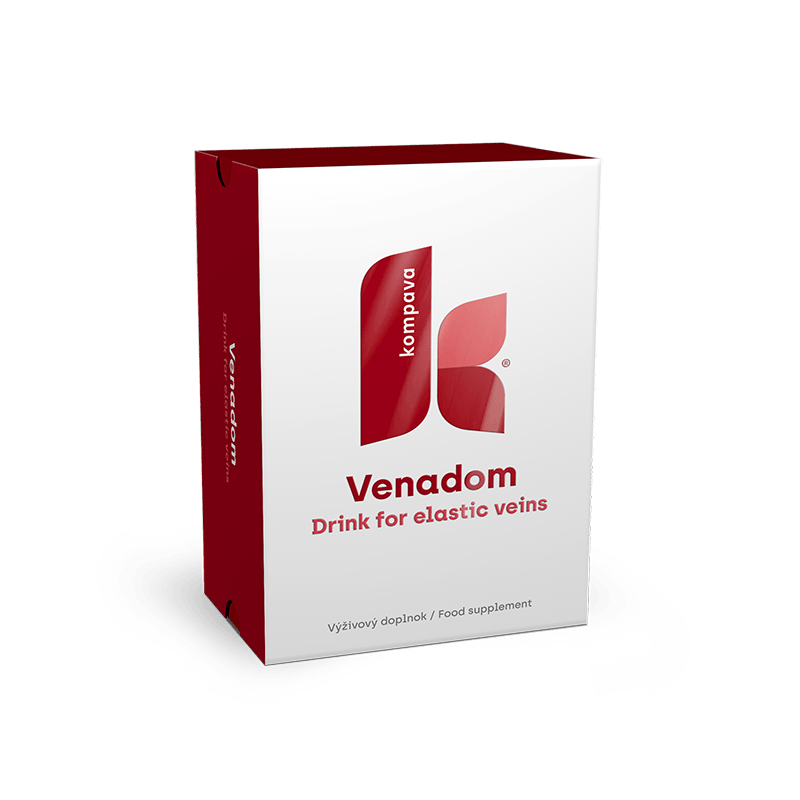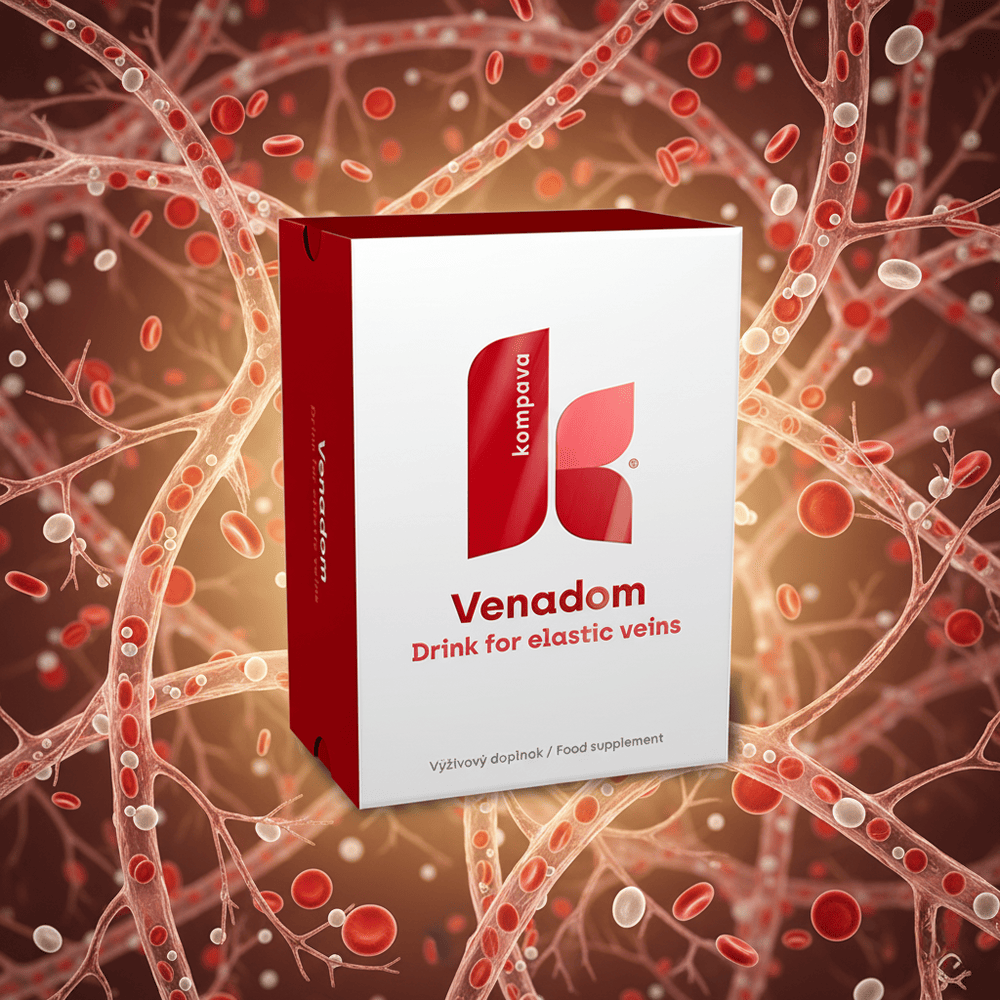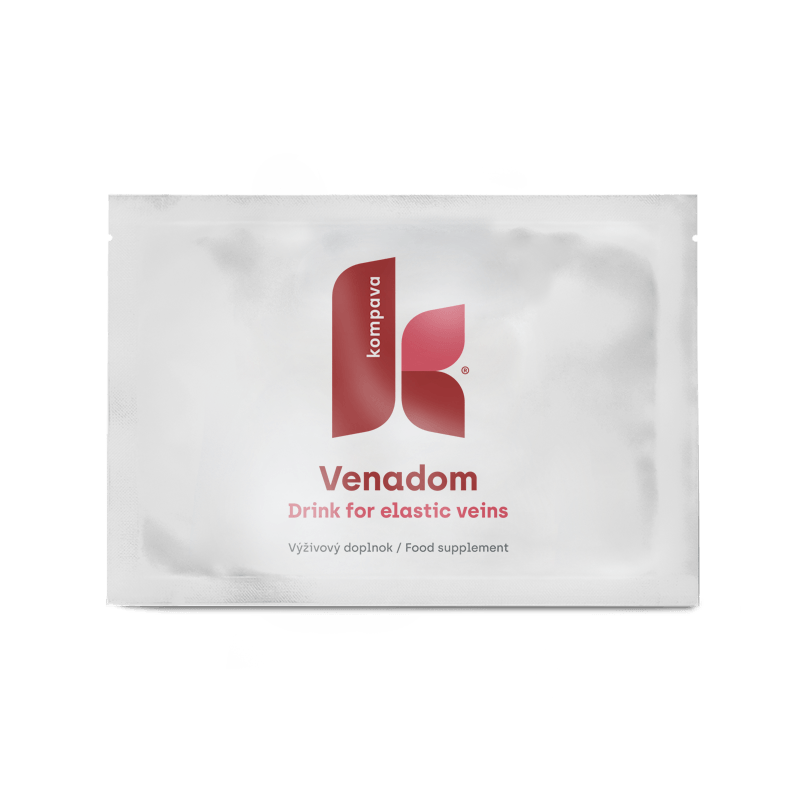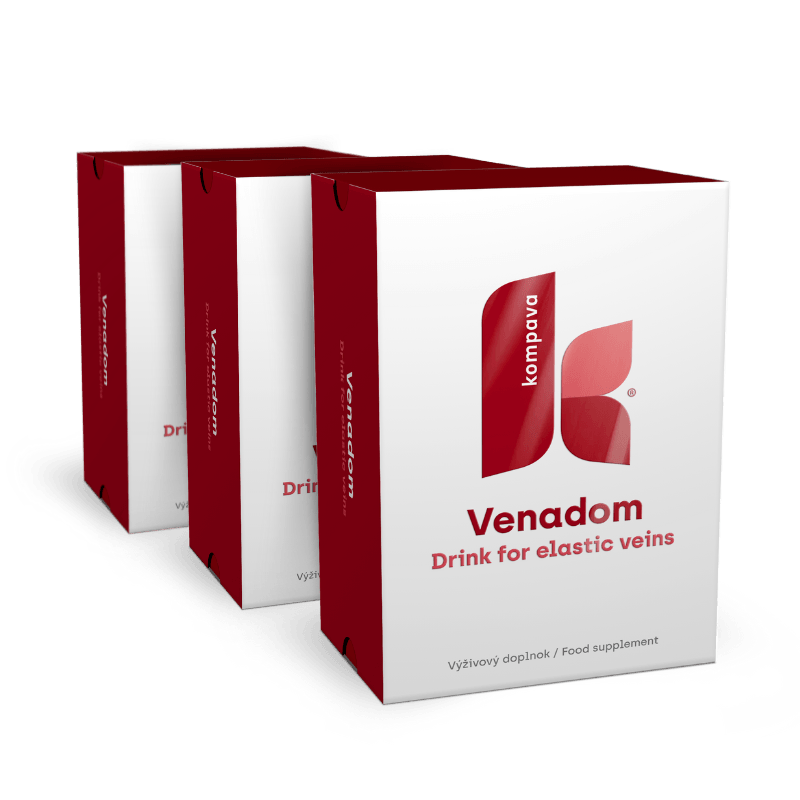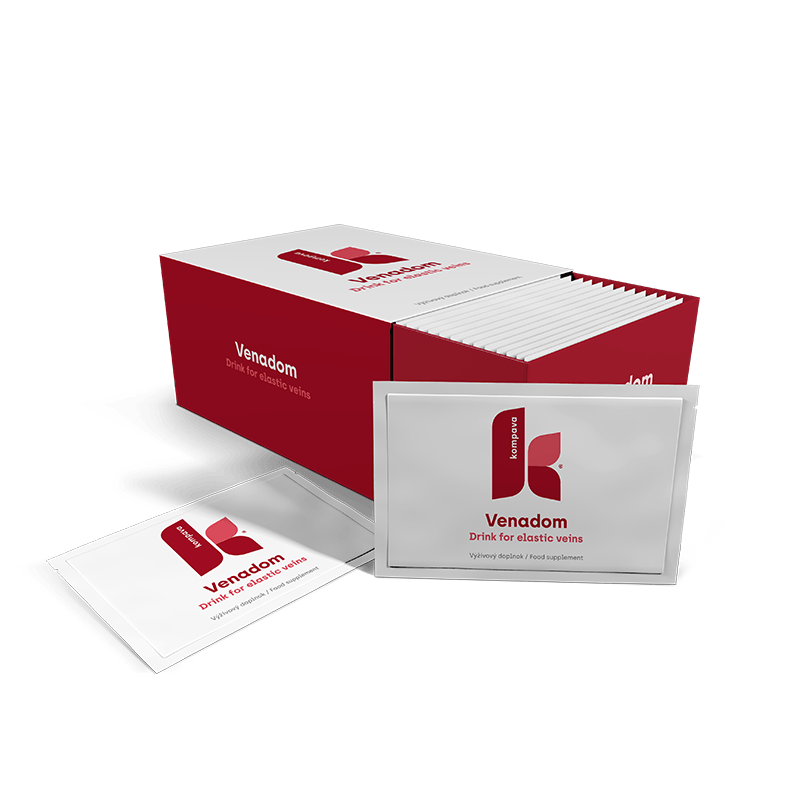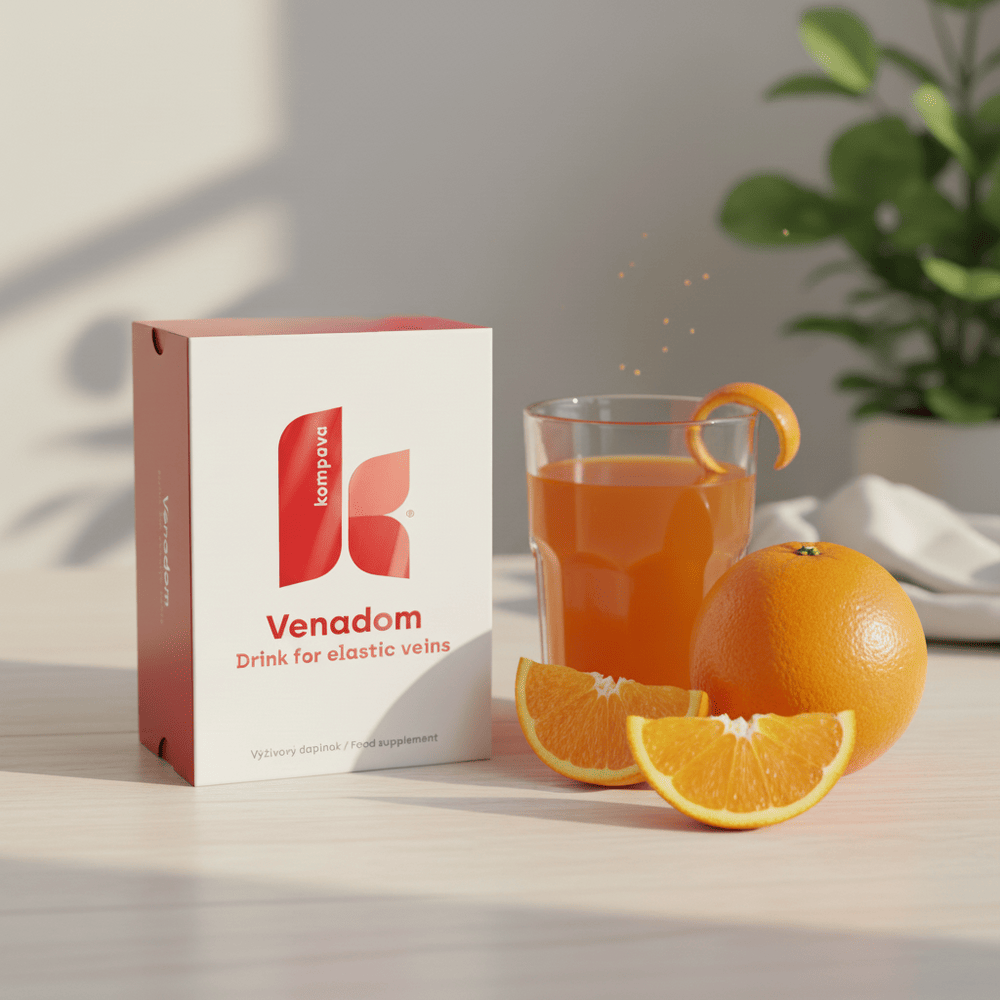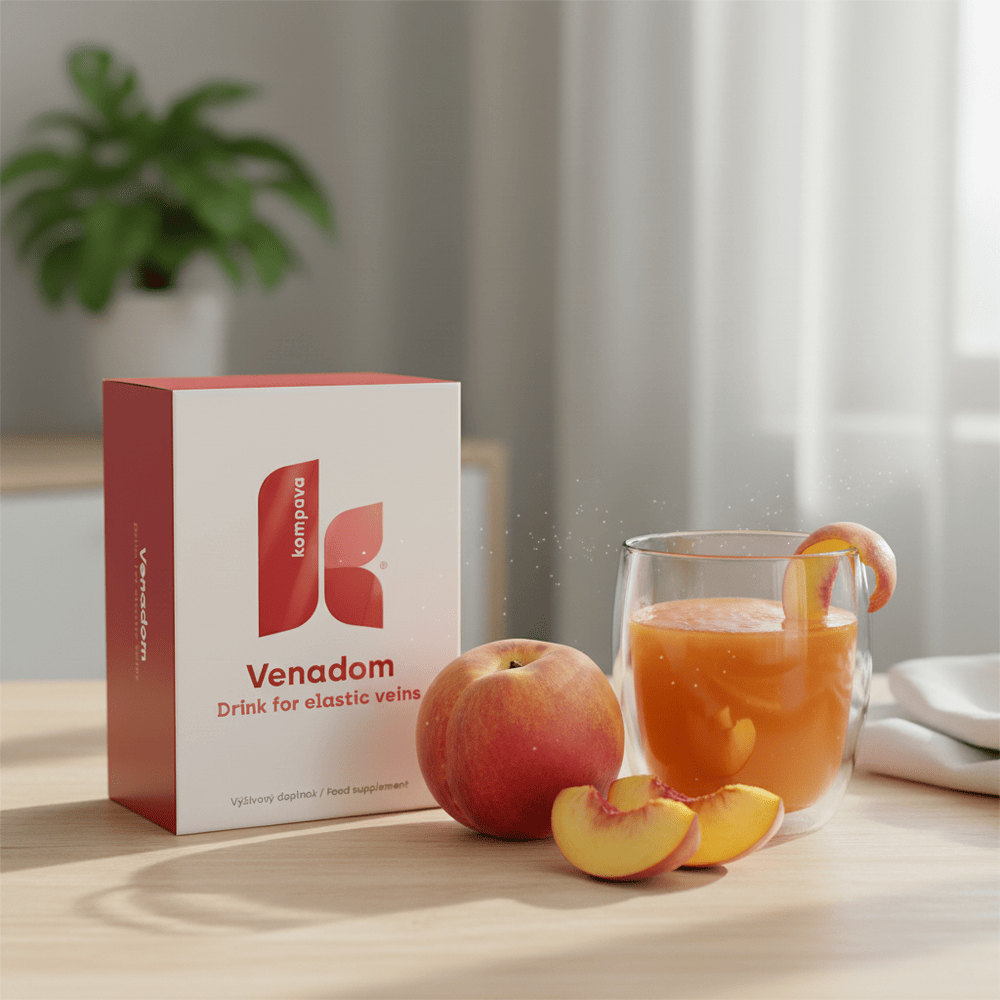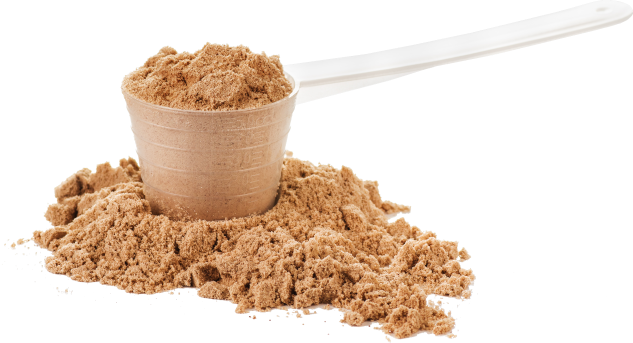
The Venadom drink was developed to ensure the supply of necessary nutrients for blood vessels through convenient use without the need to swallow capsules or tablets.
The complex of substances (Vena-matrix) is aimed not only at removing unwanted deposits, but also at nourishing the vessel wall, which loses its strength and flexibility with age, which can gradually lead to various cardiovascular diseases.
In addition, by using the nutritional supplement Venadom, you will naturally replenish your body with fluids that are necessary for nourished and healthy blood vessels. The product contains a high proportion of proteins, a minimum of fat and no added sugar. It is suitable for diabetics, celiacs and people with lactose intolerance.
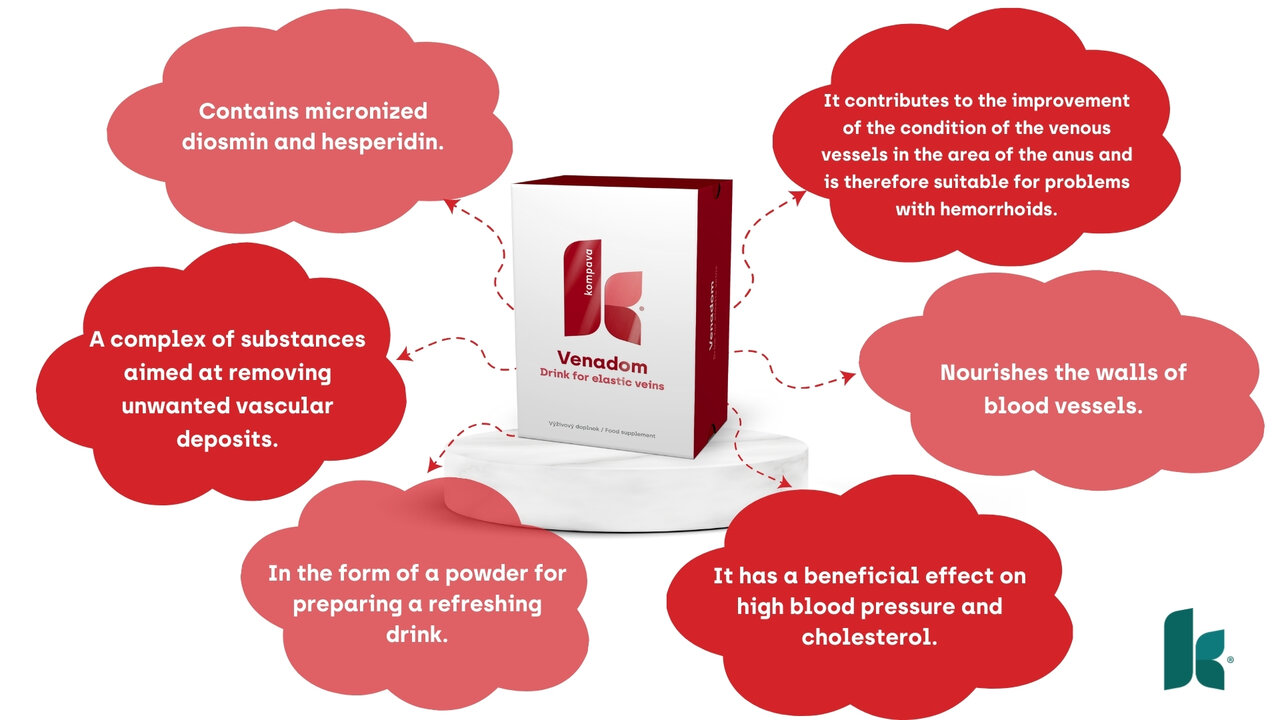
Venadom contains
- Micronized diosmin and hesperidin
The bioflavonoids diosmin and hesperidin are the most studied and most often recommended by doctors for blood vessels. These compounds occur naturally in the white part of the skin of citrus fruits such as oranges, grapefruits or lemons, and are therefore sometimes referred to as citroflavonoids. The micronized form of diosmin and hesperidin improves their passage through the digestive mucosa into the blood, which ensures high absorption.
The main effects of these compounds are:
- Vascular patency: Hesperidin and diosmin contribute positively to vascular patency by promoting the relaxation of vascular walls and improving their elasticity. This in turn contributes to better blood flow and a lower risk of developing inflammatory conditions in blood vessels.
- Antioxidant properties: Hesperidin and diosmin have strong antioxidant properties, which means they help neutralize free radicals and protect vascular cells from oxidative stress. This can minimize damage to the vessel walls and contribute to their overall health.
- Microcirculation: These compounds have a positive effect on microcirculation, which means that they can promote blood flow even in smaller vessels and capillaries. This can have a positive effect on venous circulation and overall vascular function.
Venous valves: Diosmin and hesperidin can contribute to the strengthening of the venous valves that regulate blood flow in the veins. This can reduce the risk of blood clotting in the veins and the formation of varicose veins. - Collagen
The high proportion of type I collagen in the daily dose ensures the elasticity, integrity and strength of the vascular wall. A lack of collagen in the blood vessels is associated with the development of varicose veins or "fluckles." The influence of collagen on the health and nutrition of blood vessels is significant and important for maintaining overall cardiovascular health. Collagen is the main component of connective tissues that form the walls of blood vessels, heart valves and other important structures in the body. Its presence and quantity affect several aspects of the vascular system:
- Blood vessel wall integrity: Collagen provides strength, elasticity and integrity of blood vessel walls. The right amount of collagen ensures that blood vessels maintain their shape and resistance to blood pressure.
- Varicose veins and venous valves: A lack of collagen can contribute to the weakening of vein walls and valves, which can lead to varicose veins and problems with venous blood circulation.
- Elasticity and adaptability of blood vessels: Collagen contributes to the elasticity of blood vessel walls and allows them to expand and narrow as needed, which is important for maintaining proper blood flow.
- Arteriosclerosis: A lack of collagen can lead to damage to the vessel walls and subsequently to the deposition of cholesterol and calcium deposits. This can trigger the process of arteriosclerosis, where the blood vessels become stiff and less flexible.
Regulation of inflammatory processes: Collagen also has anti-inflammatory properties that can contribute to the regulation of inflammatory processes in blood vessels and limit the risk of serious vascular diseases. - Bamboo extract
Bamboo extract is a rich source of silicon, which is found in the walls of blood vessels. Silicon supports the formation of collagen and elastin, so that blood vessels achieve the required strength and flexibility:
- Silicon is a mineral that plays an important role in the construction and strength of blood vessel walls. Its presence can have a positive effect on vascular health and overall cardiovascular function. Here are some ways silicon affects blood vessel walls:
- Strength and elasticity: Silicon is an important component in the formation of collagen and elastin, which are the basic proteins of connective tissues, including blood vessels. These proteins contribute to the strength and elasticity of blood vessel walls, which is essential for their proper functioning and ability to expand and narrow.
- Protection against weakening: Sufficient silicon can help protect blood vessels from weakening and changes in their structure. This can minimize the risk of varicose veins and other vascular diseases.
- Collagen support: Silicon can act as a collagen booster, thus supporting the production of collagen in the body. This ensures the maintenance of the strength and elasticity of the vascular walls.
- Prevents calcium deposits: Silicon can help prevent calcium deposits in blood vessel walls, which could cause them to harden and lose elasticity.
Protection against oxidative stress: Silicon also has antioxidant properties that can protect the cells of blood vessel walls from damage caused by free radicals and oxidative stress. - L-arginine
L-arginine is an amino acid from which NO (nitric oxide) is formed in blood vessels. If the vessels are clogged or have insufficient nutrition, there is a decrease in the natural production of NO in the vessels, which can have a negative impact on blood pressure and vessel patency. Nitric oxide also helps to relax the muscles in the vessel walls, allowing the vessels to expand and narrow flexibly. This improves overall blood circulation and delivery of nutrients to the tissues. - Bromelain
Bromelain is a proteolytic enzyme present in the stems, leaves, skin and fruits of pineapple. It removes unwanted deposits from the blood, which can cause narrowing of blood vessels over time. In addition, it has a positive effect on our digestion. - Antioxidants – vitamin C, beta-carotene and green tea extract
Obesity, smoking, high blood pressure, high salt intake, diabetes, as well as natural aging cause the accumulation of oxidative stress in the body, which can lead to vascular damage. Antioxidants contribute to the protection of cells against oxidative stress. Vitamin C contributes to normal collagen formation and the proper function of blood vessels, and green tea extract helps maintain normal cholesterol levels.
